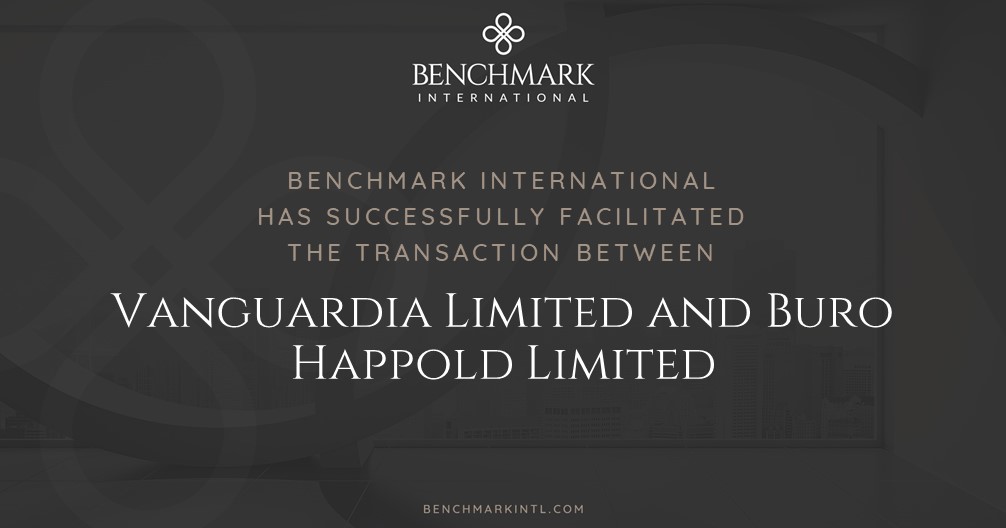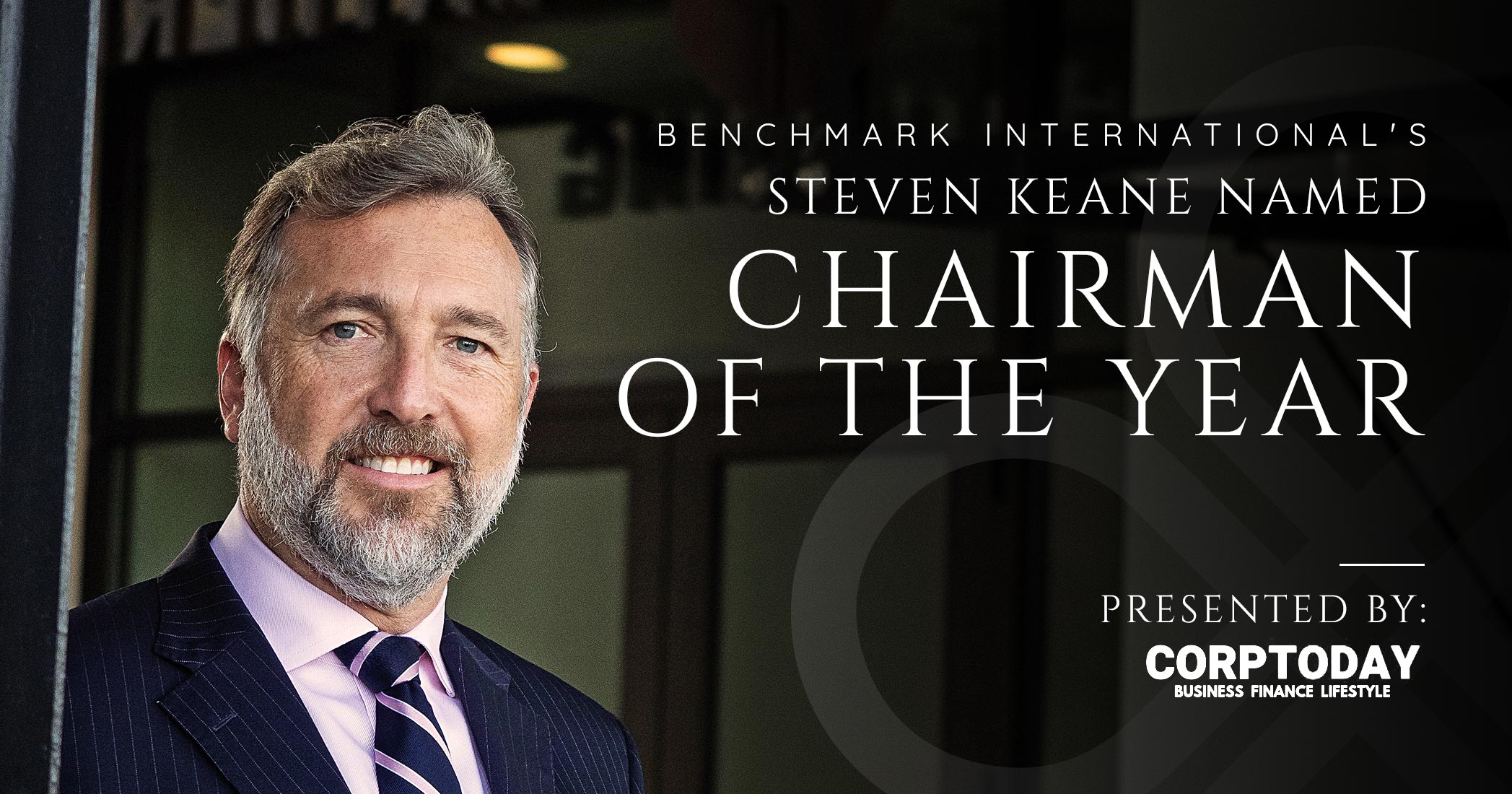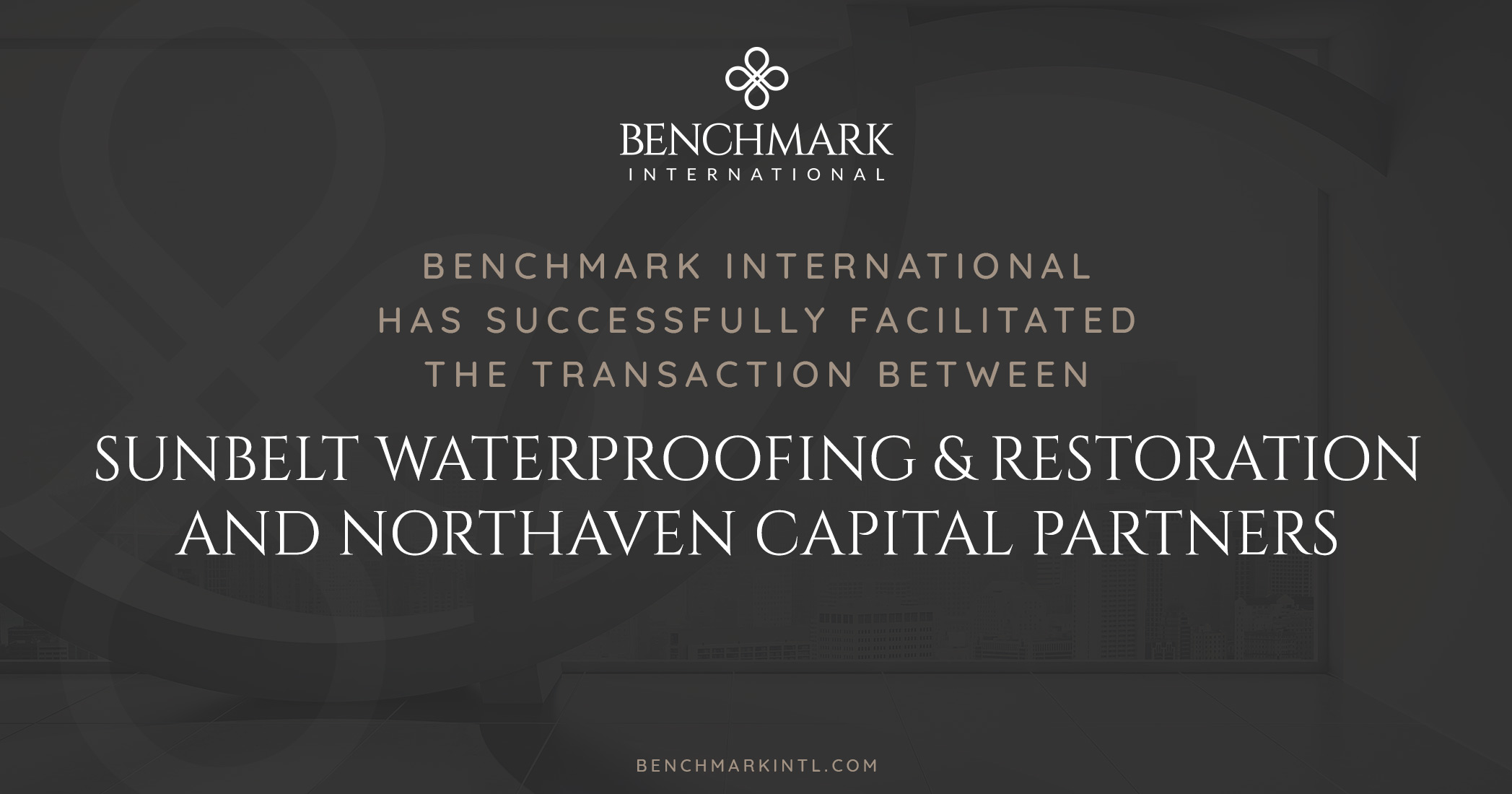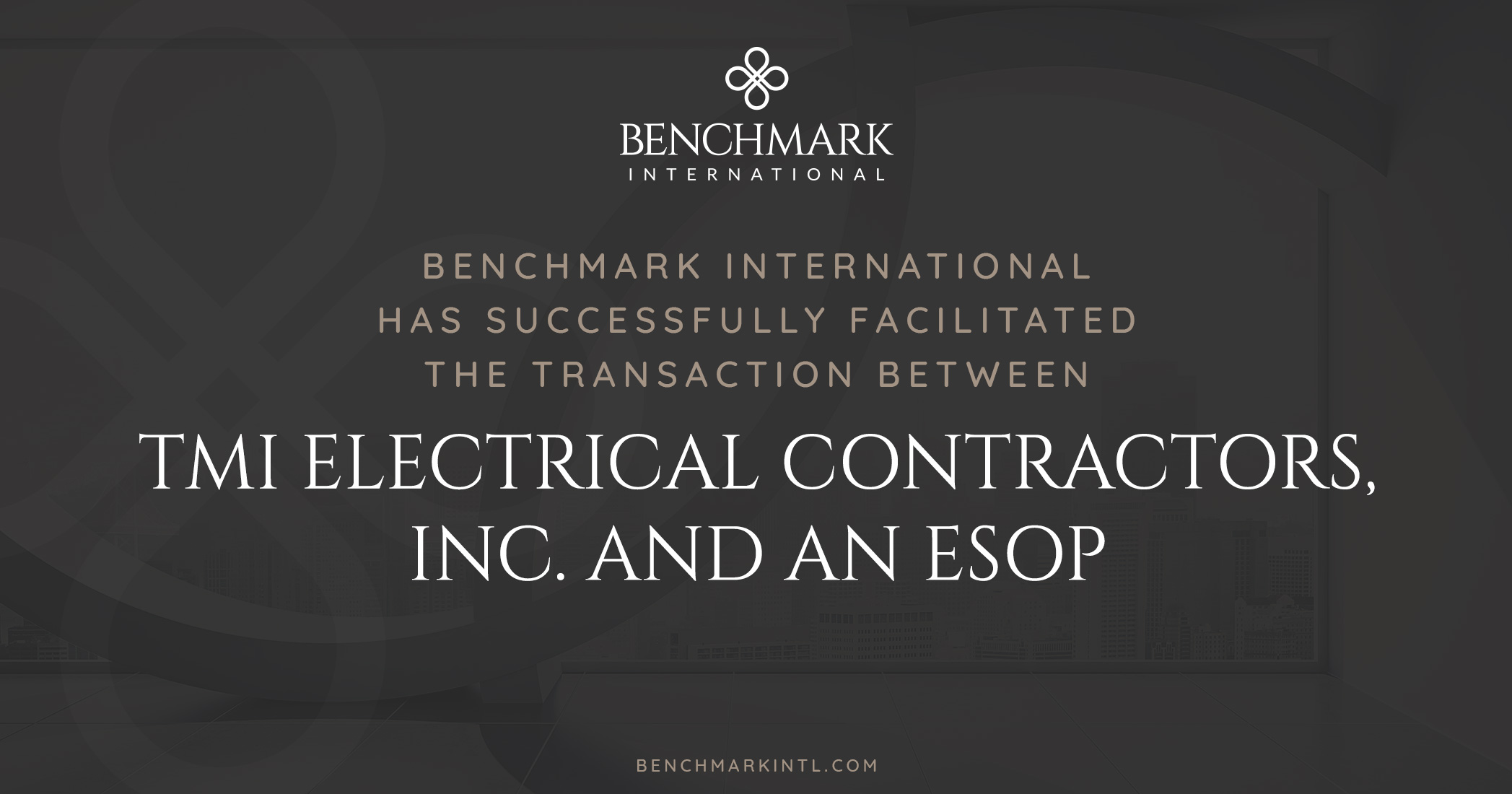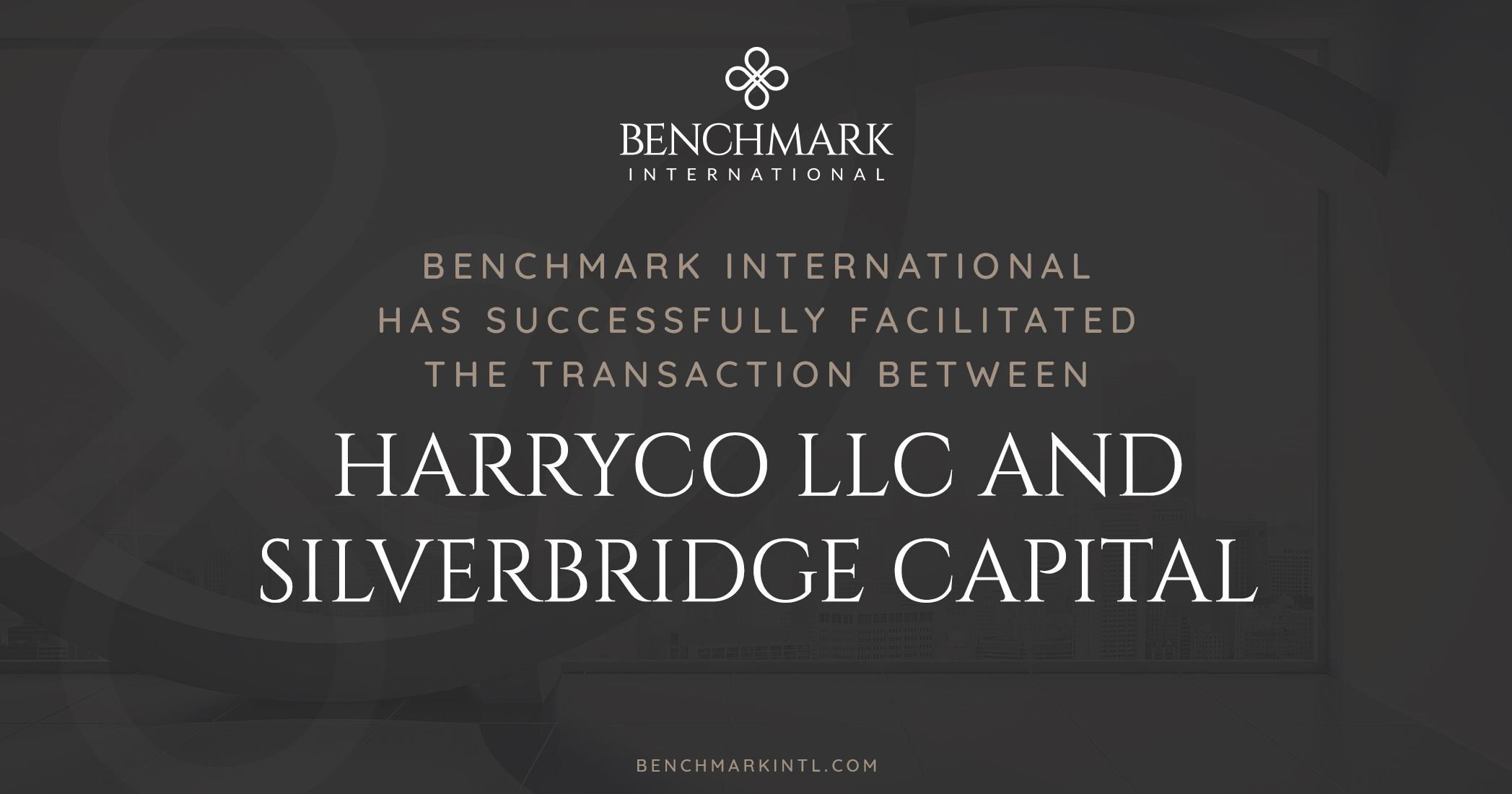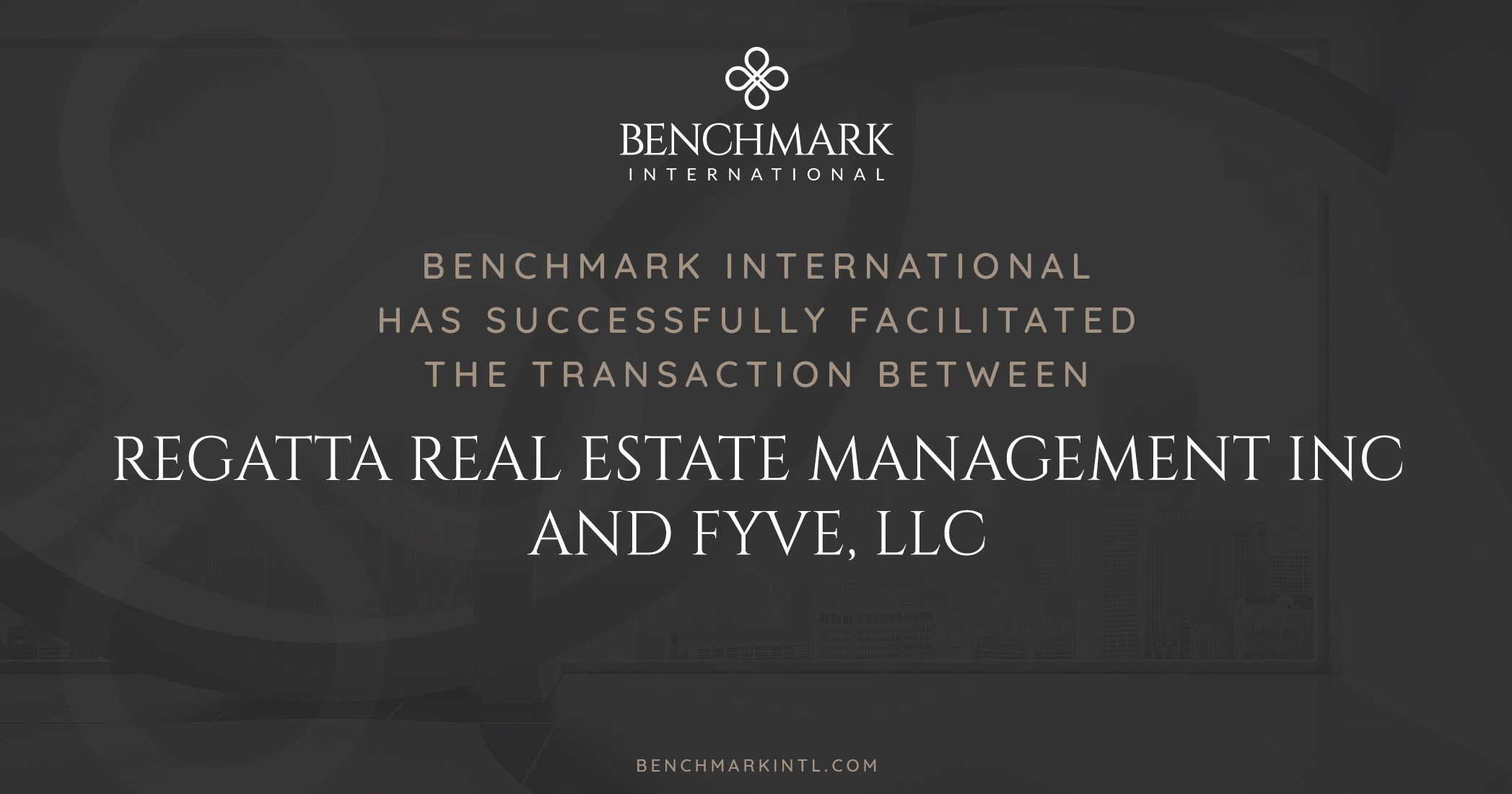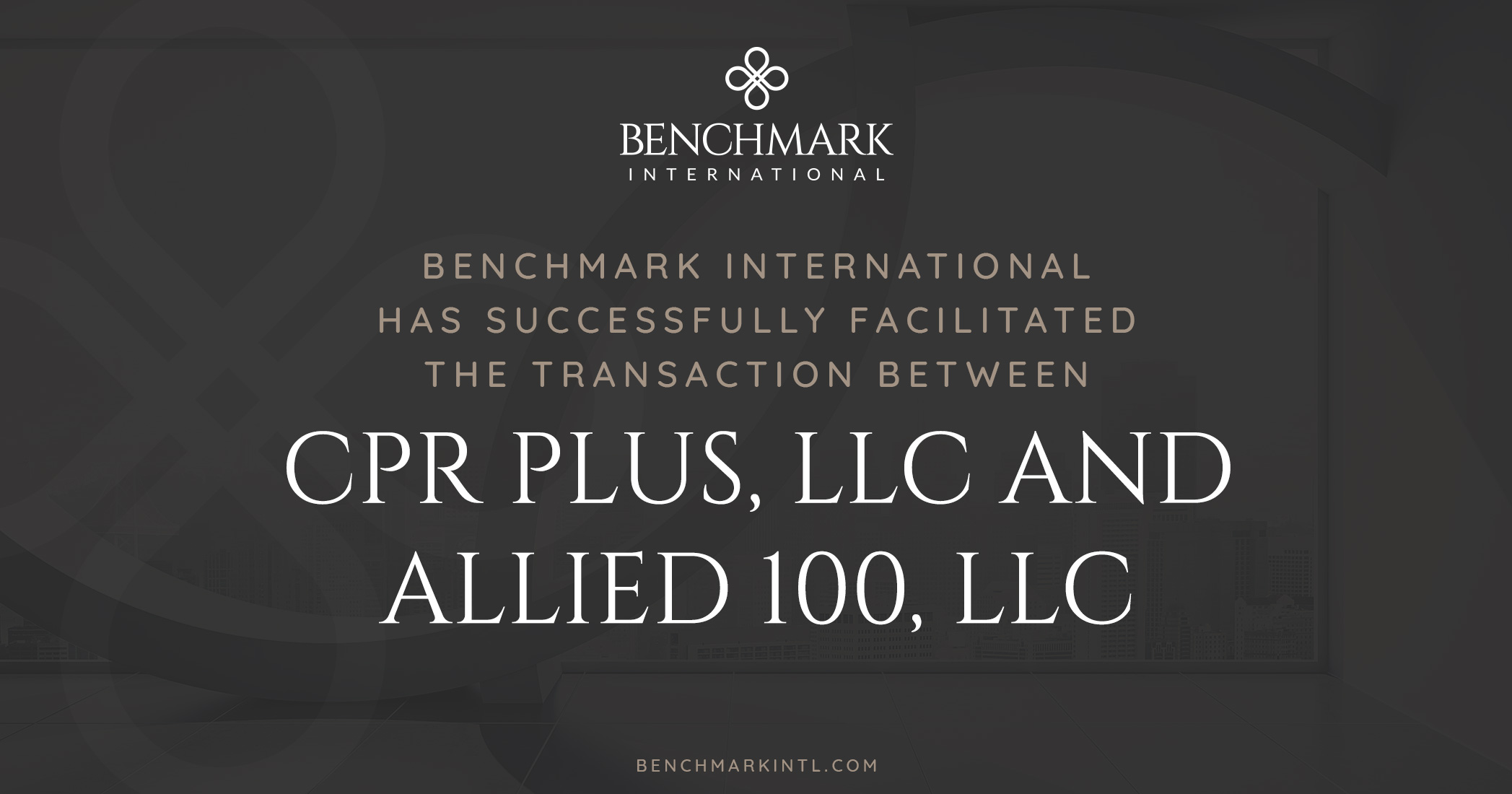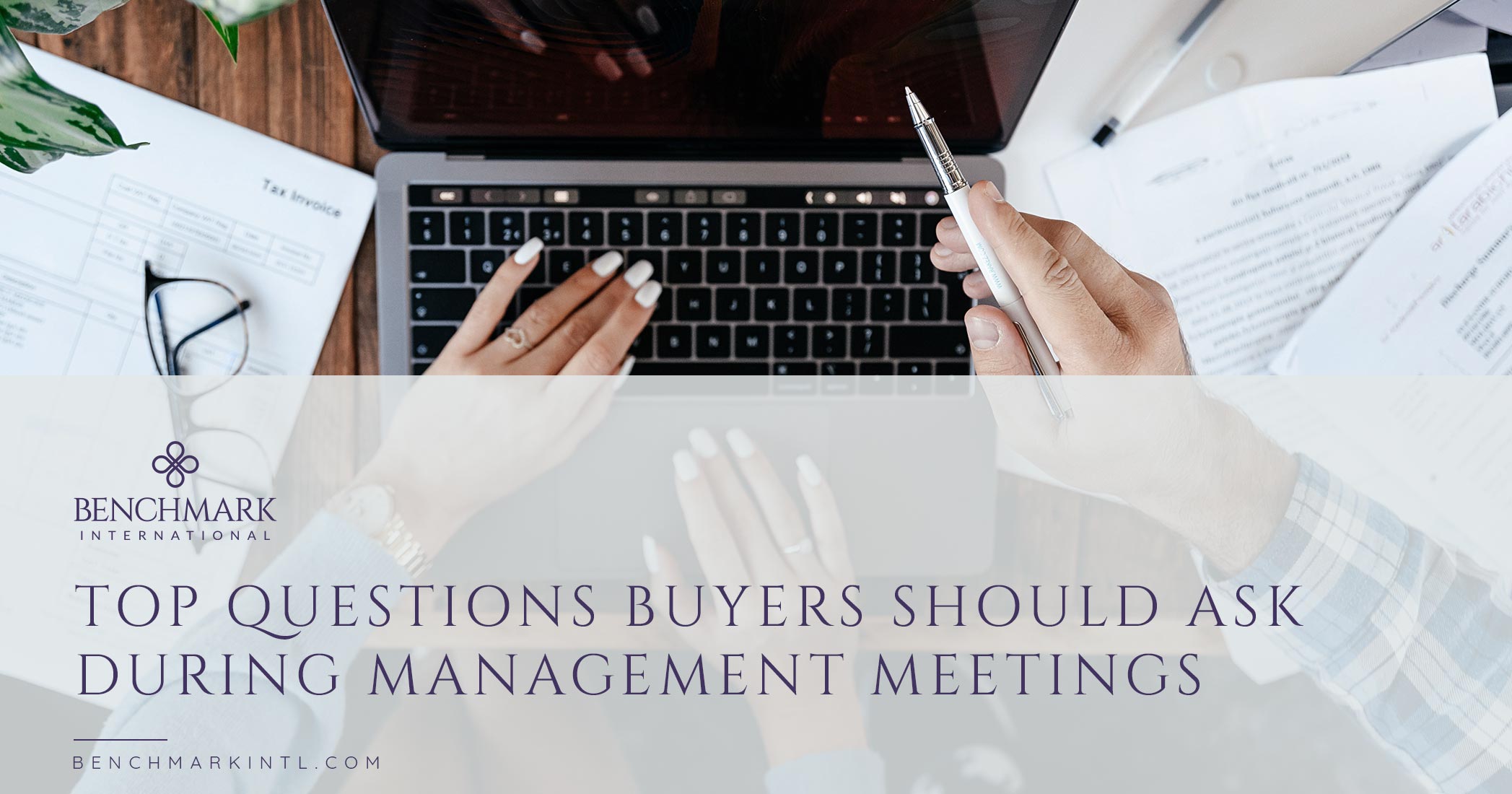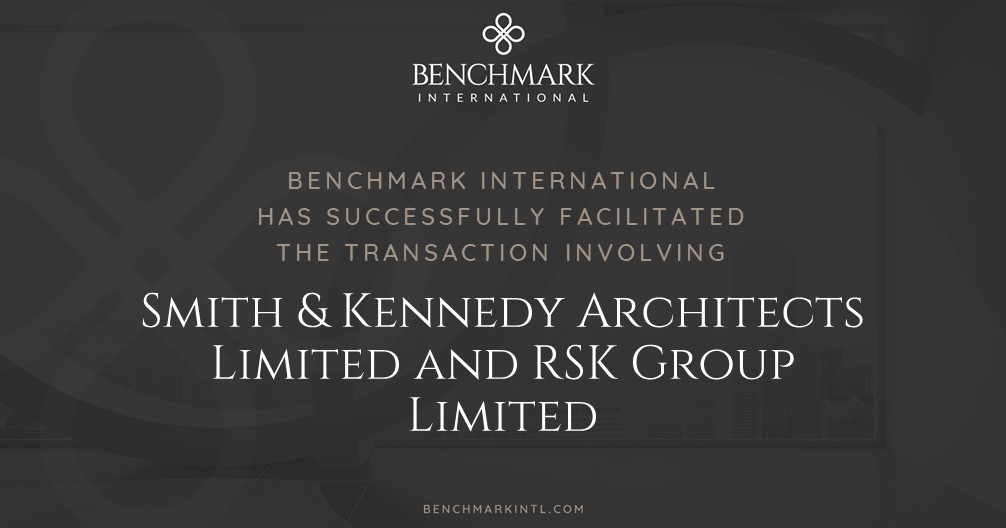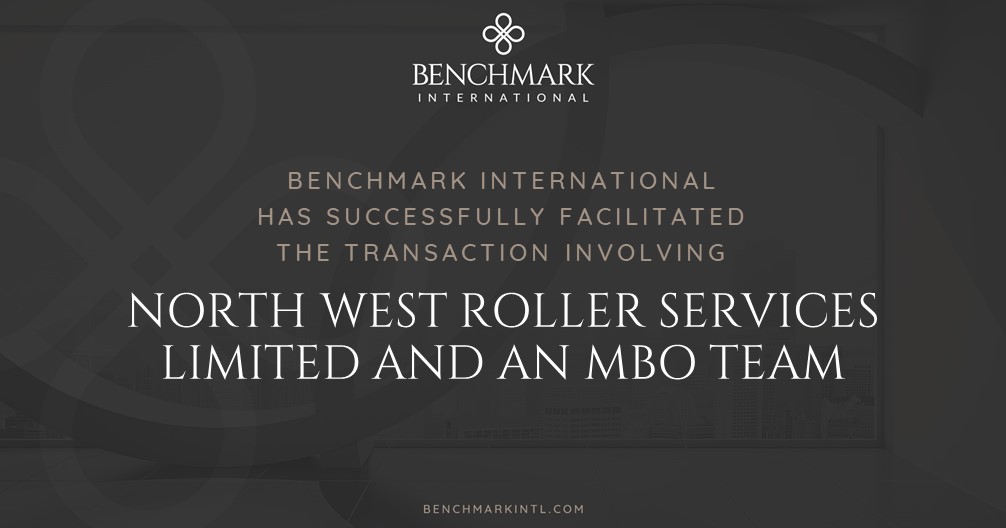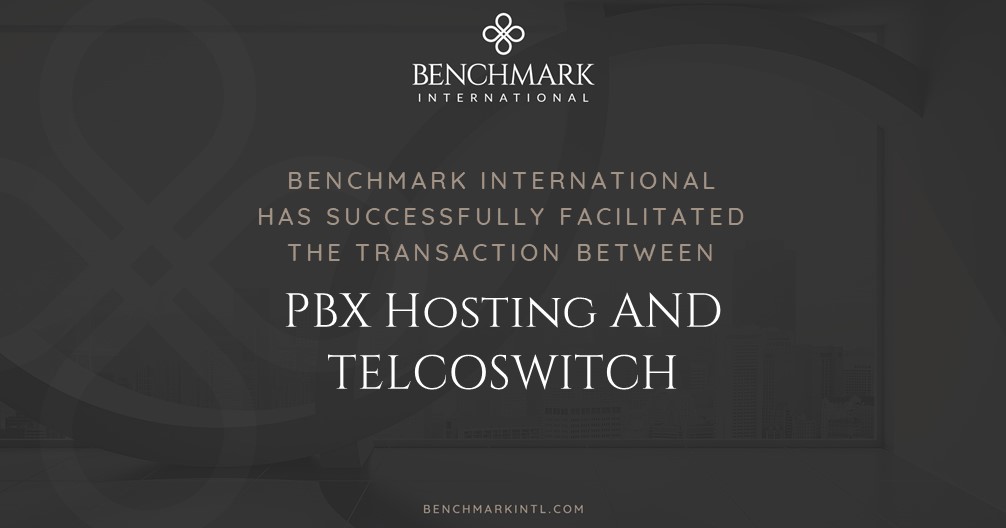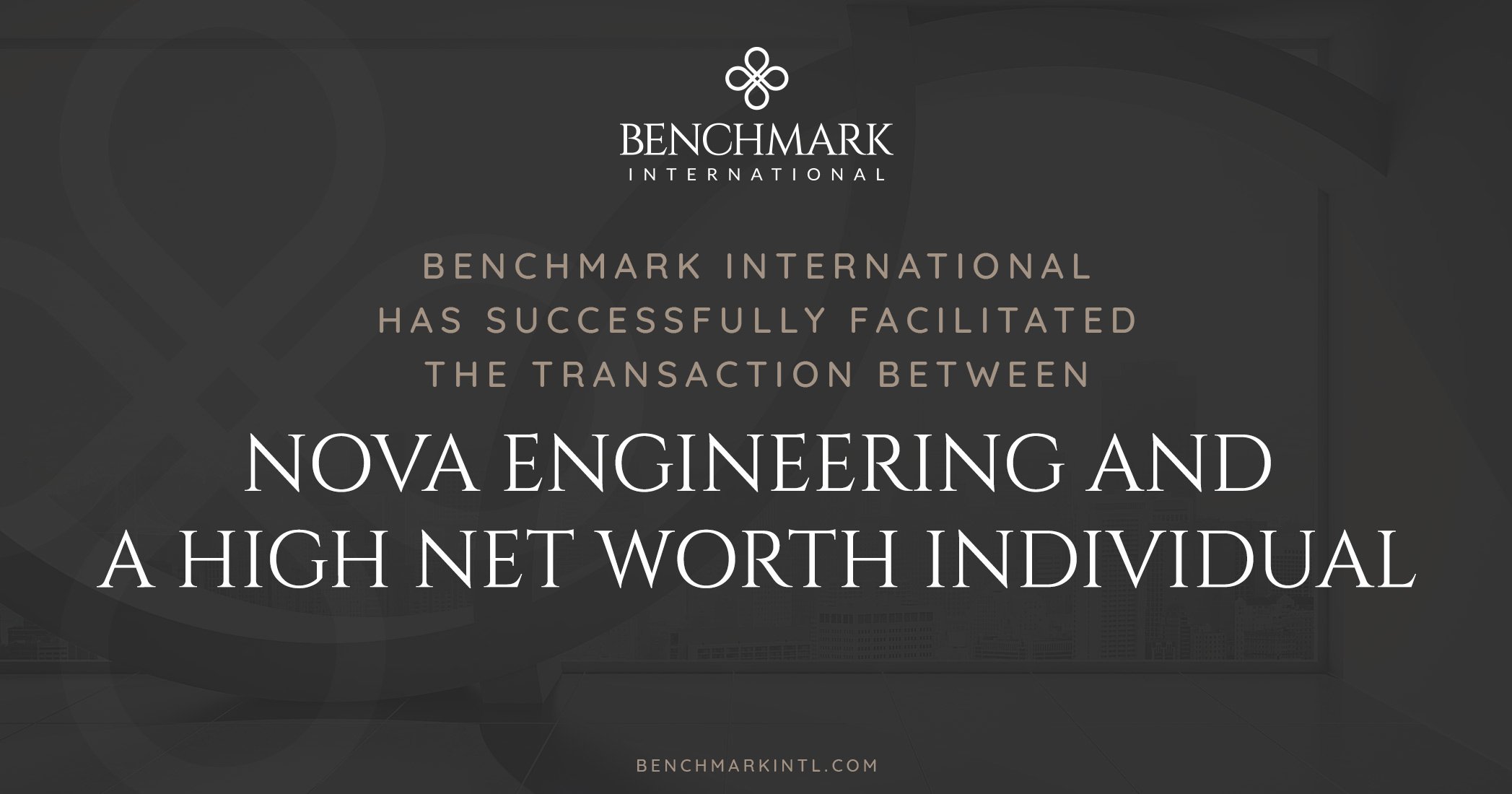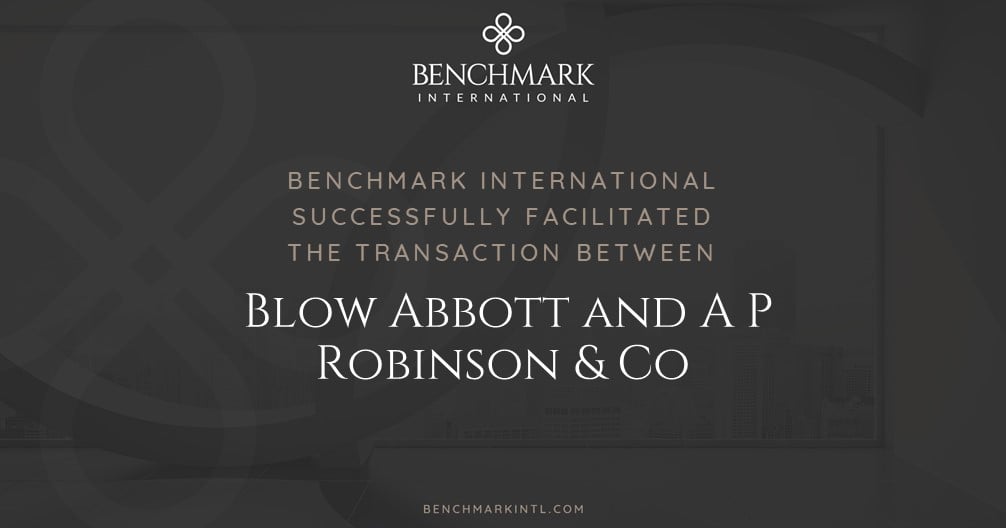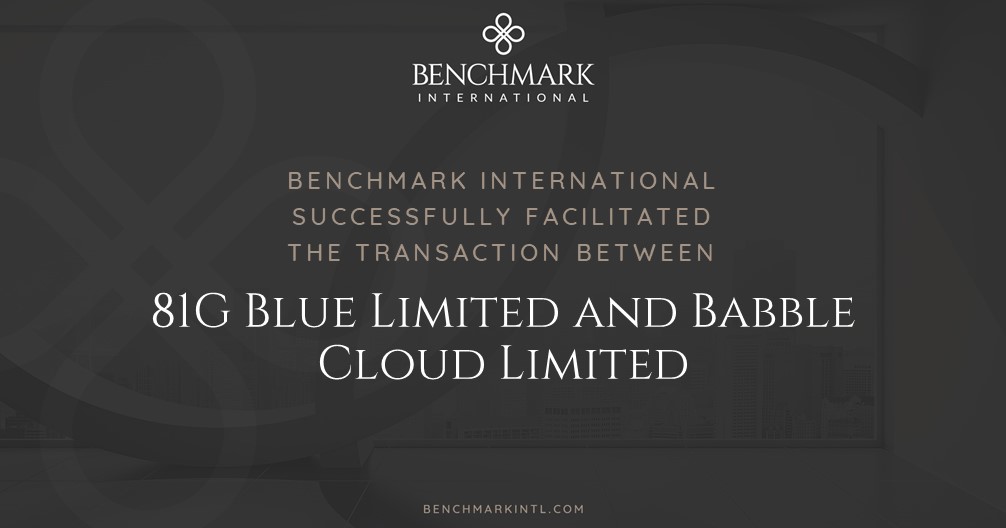Timing the sale of a company can certainly be a tricky decision. You don’t want to sell too soon, and you don’t want to sell too late either. In both scenarios, you risk leaving money on the table if the timing isn’t right. So what is a business owner to do?
READ MORE >>Archives
Can It Be Too Early To Put My Business On The Market?
Benchmark International Successfully Facilitated the Transaction Between Vanguardia Limited and Buro Happold Limited
Benchmark International is pleased to announce the acquisition of Vanguardia and its subsidiary, Crowd Dynamic International Limited, by Buro Happold.
Vanguardia is an environmental and technology consultancy, working with architects, developers, stadium and arena operators, promoters, and end-user clients to enhance sound, minimise noise and improve the air quality of industrial and commercial projects and events. The company has undertaken major landmark projects in the sports and entertainment sector, working with major touring artists like The Rolling Stones and Bruce Springsteen, leading festivals such as Hyde Park’s Time and Reading & Leeds Festival, and iconic stadium/arena venues such as Wembley Stadium and The O2.
Crowd Dynamic provides modelling solutions and consultancy to support design and operational projects in the built and natural environment.
Buro Happold has been established for over 40 years and is an international consultancy of engineers, consultants and advisers, operating in 26 locations worldwide, with over 70 partners and 1,900 employees.
Previously, Vanguardia and Buro Happold have worked together on renowned sports and entertainment projects in venues such as Tottenham Hotspur Football Club, O2 Arena, Qatar Education City Stadium, London Stadium and The Fisht Olympic Stadium.
The acquisition will strengthen Buro Happold’s consultancy capabilities, specifically in acoustics and sound engineering, environmental advisory services, plus a broad range of electro-acoustic and technology offers. It also creates a platform for the continued growth of Vanguardia into new sectors and markets.
READ MORE >>Share this:
The “New Normal” for the Restaurant Industry
Restaurants all over the world express their own environments and tastes that help people identify the culture. People travel all to all ends of the earth to savor a certain style of food or experience a certain society or tradition. Restaurants are places that we go to enjoy everything from a quick lunch to a celebration of any sort. We engage restaurants as a platform for many activities, especially in the United States. The COVID-19 pandemic inflicted issues on all social gatherings, and the world had to change the way we do many normal, day-to-day activities, impacting the restaurant industry significantly. My focus today is to enlighten you on some aspects that may help your business adapt, and make your restaurant a more attractive target to be acquired.
The restaurant industry is a monstrosity. It has various moving parts and year-over-year new aspects and competition. From ingredients to efficiency to ambiance, the restaurant sector has always been competitive and continually pushing forward with the times. 2020 brought all of that to a screeching halt. Though demand for certain items such as beans, rice, and bread was higher than ever, and grocery stores were being raided, restaurants were forced into full panic mode. There was no way to prepare, and no one knew what to do. Unlike several other diseases in the past, COVID-19 thankfully does not spread directly through livestock and agricultural products. Though that is not where the issue lies. Getting the products delivered to the location and having employees inside without spreading the disease was nearly impossible. The restaurants still surviving have obviously adapted to the times by focusing on enhanced delivery options and marketing schemes that helped them to stay afloat. With the world beginning to open back up, what is going to be the best tactic to getting the financials back to pre-COVID numbers?
More than 110,000 establishments have closed permanently over the past year, with others filing for bankruptcy. Everyone has changed their dining habits over the past year, particularly shifting to takeout and delivery. Moving forward, the industry is going to need to maintain a focus on responsiveness, and prioritization of health and safety. No one wants a cold pizza or cold veal parmesan in a plastic container. Presentation has come further into play. Restaurants need to get a foot ahead of the competition in any way possible. More restaurant concepts will have a drive-thru or pickup window in construction designs. Marketing schemes have been redirected to be community-based on a larger sense. For example, homeowner associations, next-door-neighbor sites, and city blog pages are going to need to be targeted. Along with that, customer loyalty programs, organic menu options, social media options, and mobile paying all may be beneficial. With the vaccines being distributed more widely, people are tired of being cooped up for over a year and are starting to travel and go to the newest, trendiest, most happening areas. How do you make your business compete and intrigue the crowd? There has to be a niche to your business—one that makes it stands apart from the chains and competition. There are restaurants on every corner, so you must create a particular dish or unique ambiance that people will remember. It is a difficult median that must be found where you are focusing on your health, yet also creating a memorable experience. Technology has also made its presence known, as nearly all communication over the past year has been through phone, text, video chat, or online ordering.
When it comes to mergers and acquisitions, what can you do to make your restaurant more sellable? There are a lot of factors that come into play, but a large portion has to do with profit & loss statements, balance sheets, and showing consistency. Of course, 2020 will not be taken out of consideration, but at the same time, buyers cannot consider last year to have been normal. Some buyers will try to take this into consideration as they want the better deal, and this may work out in certain situations, but overall growth or consistency makes your company enticing. Outside of financials, strategic buyers seem to focus on how it lines up with the current business they are operating. Room for development is a trait that I’ve learned many potential buyers seek. With wanting to bring your business into a current facility, or operating under the same name, buyers want to be able to see the room for growth. Along with that, the capability to adapt is a key aspect because any time new management is put in place, there may be at least a few altercations. Looking forward, what is going to be the challenge is getting your financials back to where they were pre-COVID. This is easier said than done, but a few good places to start are re-accumulating an employee base, providing a safe environment, following all government regulations, and providing the same pre-COVID quality of service and food.
With mergers and acquisitions, if you were one of the larger firms such as OPES Acquisition Corp. or Inspire Brands, this would be an opportunity to make significant acquisitions. When smaller brands struggle, they can swoop in and save the day by acquiring them. The stage has been set in a sense for the next several years with different outlooks. Well-performing chains with drive thrus and delivery options yield high multiples, while frustrated owners are selling struggling chains. Activity will be fueled by cheap debt thanks to low interest rates, private equity groups, other investors that remain ready to spend, and strategic investors eager to get bigger. There is a lot of money that private equity firms have held onto for 2021, along with SPACs making their presence known. Getting your restaurant’s financials back up to normal and showing that your business has withheld and adapted with the times will make it more attractive.
Along with the direct work in the restaurant industry, the delivery options such as Grubhub, DoorDash, Postmates and Uber Eats have exploded, and their presence has been known in the mergers and acquisitions industry. DoorDash is the industry leader with 50% market share, Uber acquired Postmates, with GrubHub in a close second. Before COVID, many companies said they intentionally avoided these apps because the cost to the business seemed too high. Once COVID hit, these apps were essential to keeping many businesses open. There was a survey taken with 2,500 consumers in July that stated that 52% of them would avoid restaurants and bars even after they open back up. Showing your capability to work with these companies as efficiently and effectively as possible will be a contributing factor to the success in your business for the next several years.
The restaurant industry will overcome this pandemic and to adjust to what the new normal will look like. With the vaccines being distributed, the light at the end of the tunnel seems visible. Although it will not be an overnight process, the economy will recover and there will be new adaptations to get used to. Restaurants are opening back up and doing all they can, and the competition is eager to do the most they can with the government regulations. It may be far from over with limited capacities and dine-in options still somewhat limited, but local companies are doing everything they can to accrue the income to keep the doors open. Local restaurants need this, and there is a difficult balance that needs to be found. The hope is there, and the future is bright for both buy-side but sell-side M&A in the restaurant industry.
SOURCES
READ MORE >>
Share this:
Why 2021 Is A Seller’s Market
A Seller’s Market Versus a Buyer’s Market
In a seller's M&A market, excess demand for assets that are in limited supply gives sellers more power when it comes to pricing. Such demand can be generated and galvanized by circumstances that include a strong economy, lower interest rates, high cash balances, and solid earnings. Other factors that can instill confidence in buyers—leading to more bidders willing to pay a higher purchase price—include strong brand equity, significant market share, innovative technology, and streamlined distributions that are difficult to emulate or recreate from scratch.
READ MORE >>Share this:
The Importance of Timing When Bringing a Company to Market
Any company sale process features numerous factors outside of the seller's control. These include the overall state of the economy, finance market behavior, and advancements within specific industries. Most sellers do not fully appreciate that taking the time to thoughtfully prepare a company for its own sale is one of the biggest opportunities to exert control in the process. This opportunity should not be missed.
In business, thinking long-term is crucial – if the overall goal revolves around an exit, business owners need to take advantage of their ability to shape and polish their companies in a way that will ultimately increase their chances of a successful exit. Preparation is key and when a sale is being contemplated, timing is essential. The earlier sellers start preparing, the higher their chances of finding the right buyer and successfully exiting. Ultimately, owners that plan and take enough time to address small issues/details make their businesses more attractive to both financial and strategic acquirers.
Typically, it is not feasible to make radical changes to the nature of a business, product line, or management structure just before a sale, so conducting an internal review is generally the most time- and cost-effective approach – and one that gives sellers the best chance to maximize value. Below is a summary of key items for review prior to your sale process.
- Financials – Getting your company's financials in good shape is essential and will ultimately facilitate getting a deal through each stage of the process smoothly. Choosing adequate accounting principles and standardizing monthly, quarterly, and annual statements (P&L, Cash Flow, and Balance Sheet) typically ensures businesses are valued fairly. Being able to show strong performance credibly – and present long-term sustainability – is essential.
- Litigation – If possible, sellers should settle all litigation before coming to market. Litigation is simply part of doing business, and buyers understand that. However, any more serious or particularly risky legal disputes will present an element of perceived risk and should be dispatched prior to the sale process.
- Online Presence – Investing in sharpening the company's website and overall online presence is often a worthwhile use of time and resources when contemplating a sale. Consider developing and regularly updating the company's website. Be sure to announce company "wins," partnerships, contracts, and milestones on social media platforms. Prospective buyers will most likely access every available platform when engaging in purchasing activities; the more quality information they find, the better.
- Management – In most cases, the Owner/CEO's leadership, relationships, and practices were key contributors to the business's overall success. When looking for the best deal, sellers must convince buyers that the stream of sales/earnings will remain unchanged (or, even better, grow) after they are no longer behind the wheel. This can be done by elaborating a succession plan (hiring/grooming a number two to take the Owner's position) and delegating critical tasks/functions of the business to members of the team that will remain with the company post-acquisition.
Although the preparation period requires time and resources, by putting the effort in early, sellers can best leverage their companies’ overall position when entering the market. The chance of a successful transaction increases proportionately as time and effort are invested into preparation. When the business is fully prepared for a sale, all parties win, and the process usually runs most smoothly.
READ MORE >>Share this:
How Do I Get The Most Out Of My SaaS Company?
As the owner of a Software as a Service (SaaS) company, there are several strategic steps you can implement in order to drive growth and maximize the value of your business.
1. Expand Geographically
READ MORE >>Share this:
Benchmark International's Steven Keane Named Chairman of the Year
The Benchmark International team is proud to announce that our chairman, Steven Keane, has been named International Chairman of the Year in the 2021 Global Business Awards given by Corp Today Magazine.
London-based Corp Today is a business enterprise magazine that focuses on emerging businesses and the world’s leading and fastest-growing companies, as well as their style of doing business and manner of delivering effective and collaborative solutions to strengthen market share. Their reader base consists of 138,000 C-level executives, VPs, Consultants, VCs, managers, and advisors.
The publication’s dedicated team of in-house researchers handpicked all of the 2021 winners based on merit and not popularity. Their stated goal is to recognize the best in the business.
We salute Steven for earning this prestigious recognition, as he certainly deserves it. CEO Gregory Jackson stated, “Steven’s exceptional leadership is a testament to the greatness that our company continually aspires to achieve, never settling for anything less than the very best. It’s just how we are wired at Benchmark International. Congratulations, Steven.”
READ MORE >>
Share this:
Benchmark International Successfully Facilitated the Transaction Between Sunbelt Waterproofing & Restoration and Northaven Capital Partners
Benchmark International’s client Sunbelt Waterproofing & Restoration, a Dallas-based commercial waterproofing, building restoration, and roofing company, has successfully obtained growth capital from Northaven Capital Partners in Dallas, Texas allowing the management team to pursue their growth plan.
Sunbelt Waterproofing & Restoration provides complete waterproofing services for commercial and independent contractor clients throughout Texas and parts of Oklahoma. It also includes restoration and maintenance services for commercial buildings and new construction projects. With over five decades of experience in solving unique structural and waterproofing problems, Sunbelt has proven it can provide outstanding and affordable quality solutions.
Northaven Capital Partners is an operationally focused firm investing in lower middle market companies with strong potential for growth. They focus on collaborative partnerships with experienced, driven, and ethical management teams to build alignment and drive value. Their principals have deep experience as operators across various industries from early-stage to multi-billion-dollar enterprises. Northaven Capital has a long-term investment horizon to support meaningful, long-term growth.
Benchmark International proved its value in finding a partner with experience in the industry through its proprietary multi-medium marketing strategies. In addition, Benchmark International incorporated several campaigns with local, regional, and national associations.
Transaction Director Amy Alonso commented, “We are excited to watch our client continue to grow their business with a new partner. Our client has obtained growth capital allowing the management team to grow and provide a great working environment for its employees. On behalf of Benchmark International, we are excited to see continued success for both companies now and in the future.”
READ MORE >>Share this:
Benchmark International Successfully Facilitated the Transaction Between Houston Crating, Inc. and MEI Rigging & Crating
Benchmark International’s client Houston Crating, Inc., a Houston, Texas-based Specialty Export Crating & Packing Company, has successfully sold to MEI Rigging & Crating.
Established by Ray Lubojasky in 1994, Houston Crating, Inc., a provider of crating and export packing services to the energy and logistics industries.
The seller stated regarding the process, “I have been very satisfied with Benchmark’s excellent service throughout this sales process, and I appreciate the hard work and professionalism offered by the Benchmark team.”
MEI Rigging & Crating, a portfolio company of Dorilton, was founded in the early 1990s and has grown to one of the largest providers of rigging, machinery moving, millwrighting, mechanical installation, commercial storage, crating, and export packing services in the US. With thousands of customers served, over 30 years of experience, and ten locations across the country, MEI is driven by its corporate vision of excellence, market leadership, and enduring value. MEI has a growing team of over 450 employees in 10 offices across the United States.
Dorilton is a private investment firm that invests in businesses across a range of industry sectors, working in partnership with management to grow value over the long term. By providing funding and expertise to drive growth, Dorilton helps its companies and their people achieve their full potential.
Dan Cappello, the CEO and President of MEI, made the announcement: “We are delighted to grow the MEI-Houston team and enhance our service offering through this combination. MEI and HCI have performed joint work on customer projects in the past, and we see HCI’s professional approach and focus on safety as a great fit with our organization.”
Transaction Director Amy Alonso commented on the transaction, “We enjoyed working with Houston Crating to achieve a successful outcome on behalf of our client. Our client had several offers to choose from but felt that MEI was the best fit for the company, its employees, and its customers. We continue to see strong demand for acquisitions within the exporting and logistics space and have several bidders on standby. We hope that integration goes smoothly for the companies and look forward to seeing the combined companies have a strong future.”
READ MORE >>
Share this:
Benchmark International Successfully Facilitated the Transaction Between TMI Electrical Contractors, Inc. and an ESOP
Benchmark International is pleased to announce that TMI Electrical Contractors, Inc. has successfully restructured as an ESOP (Employee Stock Ownership Plan).
TMI Electrical Contractors, Inc. is a full-service licensed electrical contractor headquartered in Cincinnati, Ohio, servicing commercial, industrial, and residential clients.
Mark Gillespie, President of TMI Electrical Contractors, Inc., added: “TMI initially engaged Benchmark to explore exit strategy options. We worked with numerous potential groups while weighing the pros and cons of an internal restructuring and ultimately decided that an ESOP was the best route for not just our exit, but the wellbeing of the business and its employees long-term. I would like to thank Neal, Jonathan, Tyrus, and the Benchmark team for their professionalism and assistance through the ESOP process and their contribution to an overall successful result.”
Regarding the deal completion, Tyrus O’Neill, Managing Partner of Benchmark International, stated: “Mark and the team at TMI are a fantastic group and we’re excited to see them take the ESOP path. It was a pleasure working with them through the process and we wish them nothing but the best moving forward.”
READ MORE >>
Share this:
Owning a Lifestyle Business
A lifestyle business is a business that sustains or supports the income and personal needs of the owner. The business is profit-oriented, but the owner's goal is not to grow the company but maximize profits. The goal of a lifestyle business is for the owner to enjoy a work/life balance while generating enough profit to support the owner's current lifestyle without negatively affecting the owner's personal life.
Often, lifestyle businesses are small businesses and center around the owner's passion. Some examples of lifestyle businesses include e-commerce clothing boutiques, breweries, and art galleries.
Lifestyle businesses are different than being self-employed. Typically, when you are self-employed, you work defied hours. Like any business, a lifestyle business has additional time requirements. You open it up daily and work long hours and weekends, but it intertwines with your personal life. The business may be online or have a physical presence. It may or may not sell goods, or it may provide services to others.
Why would someone want to own a lifestyle business? The owner does not have to sacrifice their personal life. You are not required to work certain hours, answer to superiors, or deliver specific amounts of work on strict deadlines. There are no obligations to investors because the owner provides the funding for the business, so they also receive all the profits. You have freedom of time and location, so you can come and go as you please. The owner controls all aspects of the business. There is no board or third party to report to on the state of the business. The business provides financial freedom because the owner is earning an income that supports their chosen lifestyle. Typically, since there are few employees or other overheads, the lifestyle business tends to be positive cash flow early on.
Like all businesses, there will be challenges. The owner may struggle to fund the business at times or have limited funding. Finding the right employees could be challenging because a lifestyle business tends to have fewer employee benefits than other employers within the market.
When considering starting or buying a lifestyle business you should take the following steps:
- Define your goals: Make a list of what you hope to achieve with a lifestyle business. What do you want to accomplish with the business? What are your personal goals? Consider the amount of freedom you are seeking. Set an income target for your personal needs.
- Identify a passion or interest: Businesses can fail because the owner losses interest. A lifestyle has a higher chance of succeeding because the owner is passionate about the business or purpose. People tend to excel at their passion because they tend to spend more time on the topic because they enjoy it.
- Find a problem that needs to be solved: The business is likely to have more customers for your business if you offer them an option to solve a problem. People should be willing to pay for the problem’s solution.
- Decide on the business: After assessing the items above, you should have a good idea of what type of business to buy or start. Put together a business plan to help execute the strategy.
- Execute on the plan: Now is the time to execute your business plan. If you are going to purchase a lifestyle business and need help, there are many resources available to help with the purchase process. If you are going to start the business, begin by establishing the business. You may need to purchase inventory and begin to target clients.
READ MORE >>
Share this:
Selling Your Company? Beware Of Strangers Bearing Gifts
If you are considering selling your company, you should be aware of a certain menace that could have you in its crosshairs. There are direct buyers out there who intentionally prey on business owners, attempting to acquire a company by blindsiding its owner with big promises and, more importantly, taking advantage of their lack of guidance from a seasoned M&A professional. These buyers purposely look to avoid competition for a company because competition drives valuations higher, and they want to make an acquisition on the cheap—in addition to other shady maneuvers.
Bait & Switch
Some buyers will attempt to pull “bait & switch” tactics. To initially intrigue a seller, the buyer will present a high dollar amount. As they conduct due diligence and get the target more and more committed to the deal, they begin chipping away at the value until they reach a price and terms that are far more favorable for the buyer. This is typically an exhausting process for the seller and can lead to plenty of regret. If the deal falls apart, the seller may be reluctant to restart the process with another buyer, thinking the process will just be the same. In reality, it could have been completely different for the seller if they had a reputable M&A specialist on their side from the beginning.
Share this:
Benchmark International Named Leading Specialist M&A Advisory Firm
Benchmark International was named the Leading Specialist M&A Advisory Firm of the Year in the UK by Acquisition International’s (AI) Leading Advisor Awards.
READ MORE >>Share this:
Benchmark International Successfully Facilitated the Transaction Between Harryco LLC and Silverbridge Capital
Benchmark International is pleased to announce the acquisition of Richmond, Virginia-based Harryco LLC by Silverbridge Capital.
Harryco is a mental health organization that provides a variety of personal, group counseling, and mental health services to children, adolescents, adults, and their families. Harryco was founded in 2009 by Dr. Harold Watkins as a small mental health organization offering intensive in-home counseling services to children and adolescents. The company has since grown operations to four cities and counties in Virginia and now provides a full range of community support services to a wide set of patients.
Silverbridge is a New Jersey-based private equity firm with investments in mental health and other patient-centered healthcare organizations.
Harryco’s partnership with Silverbridge represents a key next step in the company’s mission to provide best-in-class mental health services to an expanding base of patients. Community leader and Harryco founder, Dr. Harold Watkins, will stay on with the company to continue guiding Harryco during this next phase of growth.
On the acquisition, Dr. Watkins stated, “the Benchmark International team was fantastic throughout this entire process. They did an amazing job as an advocate for me and my company. I would absolutely recommend Benchmark International to anyone in healthcare services considering a sale process.”
Benchmark International Transaction Director William Sullivan commented: “Dr. Watkins is an impressive individual who has built a great organization that serves its communities well. Our team was dedicated to getting a great outcome for him individually and one that would enable his business to partner for continued growth. It was a pleasure working with Dr. Watkins and his team, and we wish him every success moving forward.”
Share this:
Benchmark International Facilitated the Transaction Between Regatta Real Estate Management Inc and Fyve, LLC
Benchmark International is pleased to announce the transaction between Regatta Real Estate Management Inc (“Regatta”) and Fyve, LLC (“Fyve”).
Founded in 1994, Regatta is a Florida-based business headquartered in Miami. The company is a full-service real estate property management provider specializing in association management, investment property management, and condo conversions. Throughout its operating history, the company has remained focused on the small business, customer service-oriented approach.
Fyve is a nationwide, full-service real estate management solutions company that is redefining the experience for owners, residents, and tenants. Prior to the acquisition, Fyve had 11 locations across six states. With this acquisition, they will be able to reach into the Miami market and expand their Florida operations.
Senior Deal Associate Nick Woodyard at Benchmark International added, “It is always great seeing two companies come together where both parties can substantially benefit. It was a pleasure working with Tim and the Fyve team throughout the transaction. On behalf of Benchmark International, we wish both parties continued success.”
Share this:
Benchmark International Facilitated the Transaction of CPR Plus, LLC to Allied 100, LLC
On April 30th, 2021, Benchmark International facilitated the sale of CPR Plus, LLC (serving the Greater St. Louis area) to Allied 100, LLC of Madison, WI.
The seller, CPR Plus, provides life-saving skills training to more than 100,000 individuals for close to 30 years in the St. Louis area. Their comprehensive and convenient CPR training courses are accredited by the American Heart Association and administered by friendly instructors with extensive experience.
Share this:
The Impact of COVID-19 on Healthcare M&A
The Covid pandemic has placed us squarely in unprecedented times. We know this is not exactly news at this point. However, counter to the tenor of most pieces you've probably read on the topic during the past 12 months, this one aims to shine some light on one industry that has thrived: The US healthcare market, more specifically, healthcare M&A. Healthcare M&A has generally been a big winner in 2020 and into 2021 and it's happening at both ends of the market.
READ MORE >>Share this:
Top Questions Buyers Should Ask during Management Meetings When Acquiring a Company
As anyone who has ever done it before will tell you, buying a company is a process. It can take anywhere from a few months to a couple of years to complete. To reduce uncertainties and understand the business as much as possible, buyers must conduct thorough due diligence and ask the right questions. Finances, potential synergy, liabilities, customer relationships, and key employees are just a few areas that the buyer should consider.
Here are five essential questions buyers should ask during management meetings when acquiring a company.
1. Why is now the best time for you to sell your business?
READ MORE >>Share this:
Benchmark International Awarded Corporate Finance Experts Of The Year
Benchmark International was named Corporate Finance Experts of the Year (USA) by Acquisition International’s ACQ Awards.
READ MORE >>Share this:
Benchmark’s CEO Gregory P. Jackson Named International Gamechanger Of The Year
Benchmark International’s CEO, Gregory P. Jackson, was named International Gamechanger of the Year by the Gamechangers™ 2021 Global Awards.
The program is the oldest and largest of its kind in the corporate marketplace. Over the last 20 years, Gamechangers and ACQ5 have firmly established themselves as an industry standard. The awards recognize the firms and individuals that have had the greatest impact on the industry during the previous calendar year. They celebrate achievement, innovation, and brilliance in their annual program, taking the ultimate step in the search for the most outstanding organizations and professionals across the globe, and the best in achievement, ability, and performance. Online surveys are conducted of the publication’s more than 246,000 readers to make the selection of the final award winners.
In the words of the Gamechangers program, “a gamechanger changes the way that something is done, thought of or made; they transform the accepted rules, processes, strategies, and management of business functions. They shift behavior, shape culture, and make clever happen.”
Upon hearing the news of receiving the award, Mr. Jackson said, “This is a very special honor for me because it reinforces Benchmark International’s status as an industry leader on a global stage. Our team deserves to share in this recognition because of the true dedication they pour into every deal that we make happen.”
The nominations made by their voters are studied in order to recognize that all of those nominated are leaders in their fields, and some exceptional performances deserve recognition.
Share this:
Benchmark International's Gregory Jackson Named CEO Of The Year
In the GAMECHANGERS (ACQ5) 2021 GLOBAL AWARDS, Gregory P. Jackson, CEO of Benchmark International, has been named CEO of The Year in the area of Corporate Finance.
The ACQ is a leading corporate news publication serving the sector since 2003, with a global audience of more than 261,000 subscribers. The GAMECHANGERS (ACQ5) GLOBAL AWARDS celebrate achievement, innovation, and brilliance, recognizing the world's most outstanding organizations and professionals.
Share this:
Benchmark International Named International Mid-Market Corporate Finance Advisory Of The Year
In the GAMECHANGERS (ACQ5) 2021 GLOBAL AWARDS, Benchmark International has been named the International Mid-Market Corporate Finance Advisory of The Year.
The ACQ is a leading corporate news publication serving the sector since 2003, with a global audience of more than 261,000 subscribers. The GAMECHANGERS (ACQ5) GLOBAL AWARDS celebrate achievement, innovation and brilliance, recognizing the most outstanding organizations and professionals in the world.
READ MORE >>Share this:
Tips for Making Sellers Comfortable with You as a Potential Buyer
The acquisition process can understandably be a very daunting task for sellers, let alone an uncomfortable experience that pulls back the curtains on their business and its most intimate information. Many sellers realize this is not their area of expertise and will make the informed decision to contract with a sell-side M&A advisory firm before officially entering the marketplace. The M&A advisory represents the seller, but can function as your ally as a buyer if you let them because they have incentive to get a deal done. Although M&A advisors can guide a seller through the sales process and educate them on market norms, they’re not capable of self-fabricating the comfort level between buyer and seller. Over time, a seller’s relationship with a potential buyer will prove to be most advantageous in getting to the finish line of a transaction, as there will be numerous items both sides will have to work through together. Unfortunately, agreements can fall apart due to a lack of mutual comfort between the buyer and seller, and this is typically a result of a combination of multiple factors set in motion long before official due diligence even began. The following are steps you should consider when working side by side with a seller during the transaction life cycle.
READ MORE >>Share this:
Benchmark International Successfully Facilitated the Transaction Between Smith & Kennedy Architects Limited and RSK Group Limited
Benchmark International is pleased to announce the acquisition of Dublin-based Smith & Kennedy Architects by RSK Group.
Smith & Kennedy Architects is an award-winning architectural practice specialising in contemporary design for national and international clients. The company was established in 1999 by Joe Kennedy, following his acquisition of a pre-existing firm, E.N. Smith & Partners, which enjoyed a long history in Dublin, having been established in the early 1960s with a specialisation in church and education projects. Following the change in ownership, Joe Kennedy began diversifying the firm’s practice, offering services in the design of offices, schools, houses and hotels.
Following the acquisition, Mr Kennedy will continue to lead the business as it joins RSK's European division under the direction of Nigel Board.
RSK is an integrated environmental, engineering and technical services business, operating in over 35 countries, with more than 6,000 employees and a proforma annual turnover in excess of £500m. It is currently actively investing in Europe, the Middle East, Africa and Asia Pacific, and has an active client base of over 8,000 organisations spread across these regions.
The acquisition of Smith & Kennedy Architects represents one of four acquisitions this financial year by RSK as it continues its vigorous buy-and-build strategy, and the third acquisition conducted via Benchmark International over the past two years, which included the acquisition of the group of Pellings companies and Ecologia Environmental Solutions.
READ MORE >>Share this:
M&A Expectations After The Covid-19 Pandemic
It’s no surprise that the COVID-19 pandemic slowed M&A deal activity overall in 2020. According to data from PitchBook, more than 2,000 transactions closed for a value of $336.8 billion in Q2 of last year. That represents a 41 percent decline in the number of deals from Q1. Yet, deals did pick up in the second half of the year, which is likely to continue, as businesses are poised for improved economic conditions that leave COVID-19 in the rearview mirror.
READ MORE >>Share this:
Benchmark International Successfully Facilitated the Transaction involving North West Roller Services Limited and an MBO Team
Benchmark International is pleased to announce that Runcorn-based print industry firm, North West Roller Services (NWRS), has undergone an MBO.
Established in 1990, NWRS manufactures and distributes a range of consumable products for the flexographic, gravure and lamination industries. The company is the UK’s only manufacturer of fibreglass sleeves, which are marketed under the registered brand name ‘Easysleeve’, and exported to India, China, Italy and the USA.
The transaction was funded by a £1.5m equity investment from MSIF's AFM-managed Merseyside Loan and Equity Fund, alongside a debt package from ThinCats.
The new management team, led by sales manager Barry Dodgson, now have plans to "significantly increase" revenue levels and are targeting export markets as well as new product offerings.
The transaction followed the retirement of the previous shareholders and will see non-executive director Nick Owen join the board alongside Mr Dodgson.
Commenting on working with Benchmark International, Ian Antrobus, former managing director of NWRS, said:
“Although we had previously dealt with another broker for a period of three years without any success we were recommended to engage with Benchmark.
After entertaining many interested purchasers James Robinson secured an interested party and led us by the hand to finalise a successful sale on 06 April 2021.
May we thank James and all colleagues for their assistance in maximising the full potential of our business sale after thirty-one years in business.”
READ MORE >>Share this:
Benchmark International Successfully Facilitated The Acquisition Of ASAP Group By Terratest Group
Benchmark International is pleased to announce the transaction between ASAP Group (“ASAP”) and Terratest Group (“Terratest”).
Founded in 2006, ASAP is a leading foundation company specializing in a broad variety of shoring and foundation support methods, with a unique patented Sheetpiler™ technology that makes ASAP one of the premier shoring companies in Florida.
Share this:
The Importance Of Being “Sale Ready”
As a business owner, maybe you haven’t given much thought to selling your company. Or maybe you’ve bounced the idea around but not too seriously. It’s pretty common for business owners to think, “I have years before I plan on selling my business. Why would I worry about that now?” Well, here’s the thing. Life is unpredictable. Just look at how prepared the world was for the COVID-19 pandemic. We think it’s safe to say that no business owner was prepared for that.
But being prepared for the unexpected isn’t the only reason that it is important to have your business in “sale ready” shape at all times, even if you’re not ready to sell. If the company is not in ready condition, it could cost you financially. And it goes beyond that. Always operating your company as if you are ready to sell accomplishes several very beneficial objectives. It ensures that you are operating at peak performance with a focus on profitability at all times, and it helps you avoid being too late to the game to make the necessary changes to be ready to sell. A person’s priorities in life can change quickly or even gradually over a span of years, and you might not have the time to correct any issues that would impact the valuation of your company and, ultimately, its sale price. It’s important to remember that properly preparing a company to go to market can take years. When push comes to shove, if you end up in a situation where you need to sell, not being ready can be a costly mistake.
READ MORE >>Share this:
Benchmark International has Successfully Facilitated the Transaction Between PBX Hosting and TelcoSwitch
Benchmark International is pleased to announce the acquisition of Coventry-based PBX Hosting by TelcoSwitch, a provider of hosted voice, unified communications and compliance solutions, in a £4.5m deal.
Founded in 2007, PBX Hosting delivers hosted UCaaS solutions to offices and contact centre environments through its base of channel partners. The company will continue to trade independently post-acquisition given its strong regional brand presence, but its capabilities will be enhanced due to an increased headcount from within the TelcoSwitch Group across sales, account management, support, DevOps and marketing.
PBX Hosting’s channel partners will also benefit from access to the growing UCaaS product portfolio of the wider TelcoSwitch Group. Moreover, the acquisition further boosts the technical proficiency of TelcoSwitch due to PBX Hosting’s management team and staff remaining in place, and provides TelcoSwitch with a regional office in the heart of the UK.
The acquisition is TelcoSwitch’s second of 2021, following the OneVoice deal announced in January.
READ MORE >>Share this:
Benchmark International Facilitated The Transaction Of Nova Engineering And A High Net Worth Individual
NOVA Engineering, Inc. is a State of California Disabled Veteran Business Enterprise (DVBE), a State of California Small Business Enterprise (SBE), a City of San Diego Small Local Business Enterprise (SLBE), and a Service-Disabled Veteran-Owned Small Business (SDVOSB). NOVA Engineering offers the experience of a unique team that brings the enthusiasm and energy of a seasoned firm, tempered by the high level of skill and professional relationships that can only be built through long-term experience. NOVA Engineering provides professional consulting services, including planning, civil engineering, surveying, and stormwater services for San Diego County in California.
NOVA’s team brings extensive experience in providing property, construction, and topographic engineering and surveying services to the San Diego market. They provide responsive, professional service, which has earned them the privilege of working with many clients time and time again.
The high net worth individual that acquired the firm is the principal engineer of two Southern California based consulting firms offering civil engineering, surveying, and planning services. The acquisition of NOVA Engineering allows the acquirer to consolidate the practices to offer a more comprehensive suite of services to the greater San Diego Metropolitan Area.

In reference to the transaction, Danny Barnett, President of NOVA Engineering, explained his experience with Benchmark International, “Benchmark International was a huge help in brokering the sale of our company. From the front end marketing to the back end deal closing, the deal team was constantly in communication about new buyer interest and providing suggestions based on their breadth of deal experience. Most importantly, they were reachable. Every phone call and email we sent was always answered in the same day.”
Sam Stallings, Associate at Benchmark International, stated, “Our client continued to stress the importance of the acquirer’s cultural fit with NOVA Engineering as it was a top priority for our client to be confident that the firm would be left in good hands. Like many business owners within the lower-middle market, NOVA Engineering wanted to ensure that the clients, company, and employees would continue to work with a firm that shares the same vision and values as NOVA Engineering. Our talented deal team quickly sought out a buyer motivated by the client’s footprint and reputation in Southern California. The team’s achievement in identifying a strong cultural fit and seeking an above average multiple for our client is the culmination of tireless teamwork and relentless pursuit of preeminence in the marketplace. We are excited for both parties and wish them the best of luck with their future endeavors.”
Share this:
Benchmark International Successfully Facilitated the Transaction Between Blow Abbott and A P Robinson & Co
Benchmark International is pleased to announce the merger between North East Lincolnshire chartered accountants Blow Abbott and A P Robinson & Co.
Established in 1967, Blow Abbott is a ICAEW chartered accountancy practice and payroll service provider for SMEs, providing a turnkey service including final and management accounts, and cloud accounting software management.
A P Robinson & Co is a well-established firm of chartered accountants and business advisers providing accountancy, taxation and business advisory services to a wide range of business and private clients across Lincolnshire and Yorkshire.
The new firm is expected to be at the forefront of technological progress and offer clients an ever-broader portfolio of services to support, guide and grow their business and profit.
READ MORE >>Share this:
10 Factors That Drive Business Value Beyond Revenue
The value of a company extends beyond the amount of revenue it generates. As a business owner, you should be monitoring the value of your company at all times, but it is especially important if you are considering exiting or retiring within the next several years, or even up to a decade from now.
Company valuations are based on far more factors than just financial statements and multiples. The process involves the forecasting of the future of the business based on several key value drivers. Sometimes these can be sector-specific, but there are many core drivers that apply to any type of business, as outlined below.
READ MORE >>Share this:
The Myth of the “M&A Cycle”: Implications for the Middle Market
People like to sound smart on the golf course. It’s one way to distract others from your golf game. Since finance and investing are popular subjects of discourse out on the links, there is always opportunity for high-minded musings on business topics. One evergreen theme revolves around the “M&A cycle.” More specifically: “Where are we in the “M&A cycle?” Is it heading up or down? Is the “M&A cycle” about to end?”
The first question above is an important one, which we will address. The second two—both very common—do not seem to grasp the nature of a “cycle,” or even what a circle looks like. In any case, what precisely makes the topic so endlessly fascinating and useful for the golf course is its totally subjective and nearly nonsensical nature as a framing concept for making buy/sell decisions. If our financial reality were truly an endless loop with defined and unchanging points to exploit around that loop, the cadence of our lives as entrepreneurs, investors, and advisors would certainly look a lot different. We would simply place our bets at certain points at the beginning of each year, later picking them up at different equally obvious points. What a world that would be!
The bad news is that there is no such reliable cycle to lean against. But there is good news for business owners considering an exit or seeking financial partnership:
- There are always opportunities in any market to maximize deal value.
- Companies and sectors can benefit from opportunities during any market conditions.
- The time is, therefore, never simply “right” or “wrong” to bring your company to market.
Let’s look at some of the most common platitudes around the “M&A cycle.”
Platitude #1: An Economic Downturn Will Drive Deal Volumes Down
This might be true on a net basis at the most macro level, but if you’re a business owner or manager contemplating a partnership or exit, that macro perspective is borderline meaningless to you. First, let’s counter this argument with another handy platitude: “There’s always a bull market somewhere.” The key to playing any macro market—whether it is up or down—is to understand where the fast streams lie within that context. No individual business trades as a proxy to the entire market, and during any downturn; for example, there are bullish sectors that offer sellers opportunities to engage buyers at a potential premium.
On its face, while declining deal volumes sound like a negative reality, such circumstances often provide successful companies with higher market visibility as buyers seek a retreat to value in less speculative times. While bull markets have a way of covering all manner of sins from a buy-side valuation perspective (allowing for more risky bets on less fundamentally sound companies), less go-go markets tend to favor higher degrees of prudence. This allows great companies to get second looks and can drive valuation rewards to sell-side companies positioned for consistency, growth, and opportunity capture.
Platitude #2: My Company Won’t Get the Attention It Deserves in a Hot Market
This is basically an opposite concern of that articulated above. The worry here is that when markets are really moving and M&A is up, competition among sellers will drown out great companies, as buyers seek to capture the upside of higher-beta bets. An important thought regarding this opinion: think through who your buyers really are—and how they buy. While it is empirically showable that macro risk-taking increases during a bull market, once again, no single business really operates as a proxy to macro trends, and few discrete buyers are a caricature of the aggregate. There are, for example, numerous family offices and value-oriented funds looking to pick up high-quality small- and medium-sized businesses in all market conditions. These are buyers whose default position is “no” regardless of what others are doing, but who will come to the table ready to transact for real value—no matter what the rest of M&A land is doing during any given period.
Platitude #3: I Need to Wait for the Next Economic Cycle to Bring My Company to Market
This is perhaps the most perplexing assertion that we hear, and it always requires a bit more teasing out. In its purest form, this notion tends to be a distillation of the previous two platitudes—namely, that the time is currently not right to sell (because the market is too hot or too cold) but the time will be right to sell later (because the market will be hotter or colder then). Stepping back, it’s instructive to reflect on what buyers are really seeking in the middle market. Hint: it’s not speculative upside. Rather, middle-market buyers are seeking opportunities to capture value created by successful entrepreneurs who have built great companies with lasting power (and, yes, upside to boot). These qualities are not cycle-dependent, so neither should be your decision to come to market.
A Better Way to Play
Trying to game the notional “M&A cycle” is not a constructive approach to taking your company to market. In all macro market environments, there are excellent opportunities for both buyers and sellers. Maximizing deal value starts with building a thriving, solid company. A thoughtful approach to your exit or partnership is far more critical than theoretical market gyrations to producing a successful outcome.
READ MORE >>Share this:
Benchmark International Donates an ICT Suite to White Bridge College
Benchmark International is proud to once again have had the privilege of partnering with PCrefurb to donate an ICT suite to White Bridge College in Tameside.
A recent IT audit by the school revealed that there are a significant number of students without access to the internet or an electronic device of their own where they live. The recent government Covid-19 laptops for vulnerable students scheme assisted some, but many still remain without the access they need to engage with online learning.
READ MORE >>Share this:
Tips for First-Time Buyers in Approaching the Letter of Intent
The business acquisition process consists of various stages. Taking the broadest view, the process leading up to the close of a transaction typically entails an initial assessment stage, and a more formalized due diligence period during which the buyer often performs a quality of earnings and legal due diligence exercise.
Many business acquirers have enough commercial and financial insight to enable them to evaluate whether they wish to acquire a business during the initial assessment stage and at what price. Prior to transitioning to the more formalized due diligence phase, the parties in an M&A transaction typically agree on a Letter of Intent (LOI). Although it is important to get the LOI right because it essentially lays the foundation on which the transaction should proceed, first-time business buyers are often unnecessarily intimidated by the task of formulating the LOI. Buyers can be generally confident they are taking the right approach to the LOI if they take care to understand the key purpose of the LOI and bear in mind a few simple commercial tips. In fact, when done right, properly crafting an appropriate LOI can help a buyer set themselves apart as a capable buyer, particularly when the seller is receiving multiple offers or there is a formal competitive bid process.
First, it is important to understand the key purpose of the LOI and to realize its scope and limitations. At a high level, the purpose of the LOI is to establish the key commercial terms of the business sale agreement between the parties, and to provide the framework on which the transaction can proceed according to the parties’ agreement. Also, the LOI will serve as the cornerstone document for the lawyers to draft the definitive transaction documents. A helpful LOI will not only specify the commercial agreement between the parties (for example, setting out the purchase price and the types of consideration if there is structure in the deal), but also provide a roadmap for key milestones or conditions to be completed by the parties in order to reach a successful close. The LOI needs to have enough detail to provide an appropriate framework, but it will typically not capture every single transaction detail. Naturally, there is a delicate balance between having enough information to provide a framework on which the deal can proceed, and not being too over detailed so as to prematurely freeze the deal discussions. An ideal LOI should contain enough information to reflect the parties’ agreed commercial terms and also provide a roadmap for the steps to be completed for the transaction to take place.
First-time buyers conducting online research are also often confused by different terminology concerning preliminary acquisition documentation. While there can be certain differences between LOIs, Indications of Interests, Heads of Terms, and Term Sheets (to name a few forms of initial acquisition agreements) depending on the jurisdiction, purpose of the agreement, or stage of a formalized M&A process, these types of documents share a lot of common principles and sometimes serve the same function. In the lower middle-market M&A space in the U.S., the majority of initial acquisition documents are formulated as an LOI.
Letters of Intent can be as short as a single page, or as long as several pages. The length of the LOI, as well as the types of provisions and level of detail in each section, depends on the deal specifics and preference of the parties. At a minimum, most LOIs contain:
- Information about the specifics of the type of proposed transaction (for example, whether the prospective transaction will take the form of a stock or asset deal)
- The purchase price
- Types of consideration if the transaction involves structure
- Conditions to close
- Other commercial or legal provisions the particular parties may wish to specify
Although LOIs are generally commercially viewed as non-binding in nature, buyers and sellers should take care to specify whether any particular provisions of the LOI should remain binding even if the prospective transaction fails to materialize. For example, although a buyer may wish to specify that it is not required to transact a close in the event a condition precedent is not completed, the seller may wish to specify that the buyer will be bound to keep sensitive information learned about the seller’s business confidential even if the transaction is not completed. Specifying which provisions, if any, shall remain binding on the parties can help avoid unnecessary confusion.
While the LOI may be non-binding in nature, this feature should not encourage the buyer (or the seller) to punt difficult or contentious items to a later stage in the transaction if they can be agreed at the LOI stage. Typically, parties best serve transactions when the difficult issues are resolved between them as early as possible. Commercial experience has shown that the parties that try to approach the LOI as if it were “fully binding” and address the difficult or controversial issues upfront are more likely to have a smooth transaction because the tough deal points are sorted earlier in the process. In addition, if it turns out there will be a sticking point between the buyer and seller, it is typically in both parties’ favor to have that issue addressed as soon as possible. If in dealing with the difficult issues an insurmountable deal sticking point is revealed, the buyer will not waste unnecessary time and resources on an unrealistic transaction. This will enable the buyer to more swiftly move on to other potential opportunities potentially enabling them to realize an alternative transaction sooner. Likewise, the seller also benefits from this approach because the sooner a deal stopper is identified, the more time and resources the seller saves compared to wastefully engaging with a buyer who will not acquire the company. Of course, not every deal point can be agreed in final detail at the LOI stage, but as general rule of thumb, addressing the heavy issues as early as possible can help lighten the work later in the transaction process.
Buyers can help themselves avoid an unnecessary deal breakup by understanding the seller’s mindset. In fact, buyers who proactively address points important for the seller in the LOI can build up goodwill towards the seller and help themselves standout as a capable buyer. For example, sellers are typically hesitant to agree on an exclusivity provision in the LOI which prevents the seller from engaging in discussions with other prospective buyers while the signing buyer engages in due diligence. A buyer which, from the outset, proposes an ambitious but realistic due diligence period with a limited exclusivity provision demonstrates an appreciation for the seller’s concerns and exhibits drive to peruse a swift transaction.
Also, savvy sellers understand the LOI will not capture all the details. As a result, sellers are likely to engage in discussions with the buyer about the reasoning and thinking behind the buyer’s provisions in the LOI. Buyers should be familiar enough with their proposed terms to be confident to have a meaningful commercial discussion with the seller. For example, if a buyer offers an exceptionally aggressive price based on limited information about the selling company, the buyer should be prepared to provide details on how they value the company. Otherwise, the seller will be forced to ponder whether the deal is too good to be true and may become unnecessarily overly skeptical. While not every detail needs to be spelled out in the LOI, the buyer’s proposed deal terms need to make sense. For example, if a proposed transaction will involve an earnout component subject to conditions, buyers could better position their offer by providing information on the earnout parameters, including information on how the earnout payment can be achieved.
Bearing these key points in mind should help buyers be less apprehensive about the LOI process. Indeed, the LOI is also often subject to various rounds of markups, so the buyer should be prepared for counter-comments but shouldn’t be shy about starting the negotiating process in writing. It is helpful to put the ideas on paper to allow the parties to focus on the key deal specifics. Putting forth a proper LOI in the first draft will show that you are a professional buyer and will ultimately help set the stage for facilitating a smooth transaction process.
READ MORE >>Share this:
Benchmark International Successfully Facilitated the Transaction Between 81G Blue Limited and Babble Cloud Limited
Benchmark International is pleased to announce the sale of Warwickshire-based 81G to cyber services provider, Babble.
81G provides fully managed IT support and services to SMEs. The company manages IT infrastructure for companies with no internal IT department, or those looking to complement their internal IT department.
Founded in 2001, Babble is a technology partner that deploys cloud solutions. In 2020 the company was valued at £90 million after rapidly growing annual revenue to £30m. Babble is backed by private equity partner, Graphite Capital, and the purchase of 81G is Babble's third deal in three months and the seventh since the start of 2020.
Matt Parker, Chief Executive of Babble, said: "The talented team at 81G Blue shares our ambition to enhance customers’ agility, efficiency and profitability and we’ve no doubt they’ll add significant value as we continue to strengthen our cyber business unit.
"Our buy and build strategy has continued at pace in 2021. We have more acquisitions in the pipeline, as we seek high quality, innovative businesses that have the potential for further growth."
Speaking on working with Benchmark International, Samantha Gibbs, Managing Director of 81G, said: "Every step of the way the Benchmark team comprising of the bright, positive and proactive Erica Skittrall, alongside her colleagues Andrew Roberts and Jonathon Parkinson, who are both consummate professionals and expert advisors, were by my side making sure that the negotiation was completed in the most fair and equitable way for my business to go on its next journey. Following a short, sharp but intensive due diligence process, the business sale was completed. If I had ever doubted using a broker, I am a convert, and if you are wavering to use a broker reach out to Benchmark first. I can't recommend them highly enough.”
READ MORE >>Share this:
Mid-Management: Dreams of Owning a Business
Have you always dreamt of owning your own business? What about having your boss’ job? If you are in management and in a privately owned company, it might be possible for you to be the boss and the owner one day. However, many mid-level managers do not know how to accomplish their dream of owning a company that currently employs them. The good news is that your dream can become a reality.
One of the challenges of transitioning from an employee to a business owner is thinking like a business owner. As an employee, your manager/owner provides guidance, and often you may not question the guidance. As a business owner, you make all the decisions, set goals, and create a plan that will drive the future of the company. Then, you will be the one that has to drive and financially fund the vision. Yes, you will develop mentors around you, but as a business owner, you are the one that benefits and suffers from the positive and negative outcomes of your decisions.
While you may work long hours currently, be prepared for a more immense workload and additional hours. Employees have a work schedule, and business owners that operate the company do not have work schedules. You are on call 24/7, and it is hard to get away from the business as you always carry that burden with you. Vacations are interrupted and weekends are often spent at the business. However, if you are in a place in your life where you can dedicate the required time, mentally and physically, to the business, the long term pay-off, whether it be financial or time freedom, can be significant.
Interview your owner and shadow him/her if possible. Ask the company owner for insight into their day. Understand the stresses that the business owner deals with daily. Some of the stresses will be confidential, such as employee issues or financial issues, so anticipate that your receiving limited insight.
Then commit to making your dream a reality. Ask the business owner their exit strategy. Some owners may be open to a slow exit where you can purchase the company over a few years, or they may want a clean exit where you have the option to purchase the company immediately and the current owner walks away after a short handover period. Having an introductory conversation about your interest in purchasing the company is going to be important. Once you understand the business owner's personal goals regarding their exit, it will allow you to structure a deal to achieve both parties' goals.
It is important to prepare your financing so you know how much you can afford. This knowledge is key to structuring an offer. The business owner will need to share the information around the business' performance for a bank to underwrite an acquisition. The company's current banker might be a good starting point. After your conversation with the business owner, ask if they would be open to making an introduction to the company’s banker. The banker understands the business and risk as they have underwritten the business previously. Their goal would be to underwrite the business to incorporate the new ownership.
Be patient and ask for help when needed. Purchasing any business can be an emotional process. If you have never been through the process previously, you may need to seek help from your advisers or hire an experienced buyer side M&A advisor. There are many resources available to you to help with the purchase.
READ MORE >>Share this:
Understanding Working Capital
Working capital, also referred to as net working capital, is the measure of a company's liquidity, operational efficiency, and short-term financial status. It is the difference between a business’s current assets, its inventory of materials and goods, and its existing liabilities. Net operating working capital is the difference between current assets and non-interest-bearing current liabilities. Typically, they are both calculated similarly, by deducting current liabilities from the current assets. So, essentially, if a business’s current assets total $500,000 and its current liabilities are $100,000, then its working capital is $400,000. But there are a few variations on the calculation formula based on what a financial analyst wants to include or exclude:
READ MORE >>Share this:
Benchmark International Successfully Facilitated the Transaction Between Trufora and Genesis Group, Inc.
Trufora, brings a new standard to dermatology by providing the market with skincare products that contain ingredients proven to be effective, safe, and non-irritating, and used at levels proven to achieve a visible, clinical benefit. The company provides products that allow every woman to feel confident, inspired, and beautiful in their skin. The products are made to simplify a women’s route and life with fewer steps but more results. Their consumer skincare line is free from more than 1,300 known toxins.
Trufora’s skincare line has been a featured product for HSN, Birchbox, and Ipsy to name a few. The company has also launched a membership model allowing customers to have access to their favorite Trufora products at a discounted price.
A critical element of completing this transaction was identifying and marketing to a variety of potential acquirer classes on behalf of Trufora. We were pleased to see that three very different strategies each produced at least one eager acquirer to submit an LOI to acquire Trufora. One of the buyers had a marketing background heavily tied to Amazon, one of the platforms Trufora utilizes for its products. Another buyer was from China and looking to acquire a US brand to help increase their Asian beauty empire. The third buyer, Genesis Group, was an interesting fit given, its founder, Artem Mariychin’s background in the consumer predictive analytics space. Trufora believed that the partnership with the Genesis Group was the best fit for the future of the company and is positioned to grow the company to the next level. This supports the notion that the obvious buyer or the usual suspects are often not the best prospects.
The Genesis Group was founded by Artem Mariychin with the goal to invest in opportunities that could benefit from his experience. Artem is the co-founder and CEO of Zodiac. Nike acquired Zodiac, a predictive analytics company, in 2018. While CEO of Zodiac, Artem built a company that provided retailers with a tool to predict the long-term value of each customer instantly and accurately, also known as the customer’s zCLV or Zodiac’s Customer Lifetime Value. Marketers use the zCLV to discover who their future highest value customers will be so that they can retain those valuable customers long-terms and acquire similar customers.
Prior to Zodiac, Artem worked at Goldman Sachs, Highbridge Capital, 3G Capital, and Perry Creek Capital.
READ MORE >>Share this:
Tips for Making Sellers Comfortable with You as a Potential Buyer
The acquisition process can understandably be a very daunting task for sellers, let alone an uncomfortable experience that pulls back the curtains on their business and its most intimate information. Many sellers realize this is not their area of expertise, and will make the informed decision to contract with a sell-side M&A advisory firm prior to officially entering the marketplace. The M&A advisory represents the seller, but can function as your ally as a buyer if you let them because they have incentive to get a deal done. Although M&A advisors can guide a seller through the sales process and educate them on market norms, they’re not capable of self-fabricating the comfort level between buyer and seller. Over time, a seller’s relationship with a potential buyer will prove to be most advantageous in getting to the finish line of a transaction, as there will be numerous items both sides will have to work through together. Unfortunately, agreements can fall apart due to a lack of mutual comfort between the buyer and seller, and this is typically a result of a combination of multiple factors set in motion long before official due diligence even began. The following are steps you should consider when working side by side with a seller during the transaction life cycle.
Be transparent with your background information in the beginning.
This is a very important first step, and it sets the stage for how trustworthy the seller will perceive you to be going forward. Be prepared to sign an NDA before receiving any confidential information from a seller, as this is a customary measure taken to ensure you bear some level of legal responsibility around any and all sensitive information the seller turns over to you. Understand that the seller is handing over their most private information and they need assurances from you the information will not be used against them by a competitor. With your NDA, make sure to include background information on yourself, your company, your intentions, and your interest in the seller’s business. Take this as an opportunity to highlight your achievements and accomplishments, speak about your goals, and so on. Sell the seller on why they should view it as an honor that you have expressed an interest in their business.
Take advantage of introduction calls.
Once you’ve gotten past the NDA stage, you will receive a small sample size of a seller’s confidential information. The next step should be an introduction call for both parties to get to know one another on a more personal level. These first calls are meant purely to be introductory in nature, and fairly high level, considering this will be your first chance to speak with the seller. Be willing to field a high number of questions from the seller as this presents another opportunity to highlight yourself, your company, your intentions, and your goals. On the contrary, sellers are proud of what they’ve built, and will be more than willing to discuss their company’s history, struggles, achievements, etc., so be sure to keep an open ear when they speak. Ask open-ended questions and build dialogue. One last but very important item to keep in mind is that every seller has a goal they’re looking to achieve by selling their business, and it’s typically more than a specific dollar figure. Some sellers are looking for a full sale to move into retirement, while others are looking for a partner to infuse capital and new growth ideas, among countless other scenarios. Listen closely to a seller’s intentions as they go beyond the monetary value of a transaction.
Make data requests with care.
As you delve deeper into a seller’s business, you will at times need to request additional information. Sometimes information you requested in the past leads you to new questions. Perhaps your review of the previous three years of financial records leads you to want to review the past five years. Or maybe you heard the seller discussing expected growth on your introduction call so you would like to see their proforma for the next year. Regardless, with each passing data request, more questions will arise from a seller as to why you are requesting this information. Make sure to always explain your reasoning behind each request you make for additional information, and always remain understanding of a seller’s sensitivity around releasing confidential information. Sometimes it’s best to facilitate data requests through a sell-side M&A advisory if the seller is using one. This advisor should be viewed as your ally and can assist in explaining market norms regarding data requests to the seller.
Remember the importance of site visits.
At some point, back and forth via email and phone calls will no longer suffice. Take the initiative with a seller to be the first to suggest an in-person meeting. Be prepared to travel to the seller and field your own travel expenses. If the seller suggests meeting halfway, or accommodating you on your visit, consider this an added bonus to you. A site visit presents the greatest opportunity to build further rapport with a seller, and put a name with a face. There will be conversations you can have in-person with a seller that can be more challenging when done virtually. This will also give you the opportunity to potentially see their operations, facility, location, etc., provided that you are meeting at their location. Remember, there could be possible limitations during your visit as the visit may need to be conducted after-hours and you probably will not be afforded the opportunity to meet the company’s employees. Though not necessary prior to a formal offer, a site visit is a very critical piece of the transaction lifecycle, and should never be discounted.
Submitting and negotiating a formal offer.
Once you are comfortable with your knowledge about a seller’s business, you will be in a position to submit a formal offer. Chances are, your first stab at a formal offer will fall short of a seller’s expectations, so don’t take offense, just remain flexible. Always remain willing to work with a seller towards an agreeable offer for both parties, while maintaining respect. Sometimes buyers and sellers can “outfox” themselves by overthinking the presentation and discussion of offers. Try to cut down on gamesmanship and be straightforward with your intentions. Oftentimes, sellers will have questions regarding topics such as your funding capabilities, and timing. Perhaps you might consider listing out deadlines for yourself in a formal offer that will give the seller assurances you will stay on target. These deadlines could involve a maximum number of days to produce a first draft of a purchase agreement, first draft of an employment/transition agreement, proof of funds, and so forth. Lastly, and this goes without saying, always operate in good faith with formal offers, and never enter the official due diligence phase with intentions not clearly defined in the offer you mutually execute with a seller.
Passing on the opportunity.
Unfortunately, not every transaction is meant to happen, and sometimes this cannot be determined until much later in the process. At some point, you as the buyer may decide an opportunity is not going to work for any number of reasons. The seller will want to be informed and understand why you no longer wish to move forward with them. In some scenarios, the seller may already understand, but giving them details as a courtesy is appreciated. Regardless of the reasons, always make an effort to communicate this in detail when walking away from a possible deal. It could prove to be worthwhile to maintain a relationship post discussions as well. Keep in mind, as you go further down the road with a seller, you will become privy to more confidential information, you will build a deeper relationship, and expectations naturally begin to take shape. The level of detail you provide on the reasoning for your pass should always line up with how much time you have spent on the opportunity and working with a seller.
READ MORE >> Benchmark International
Benchmark International  Benchmark International
Benchmark International 

